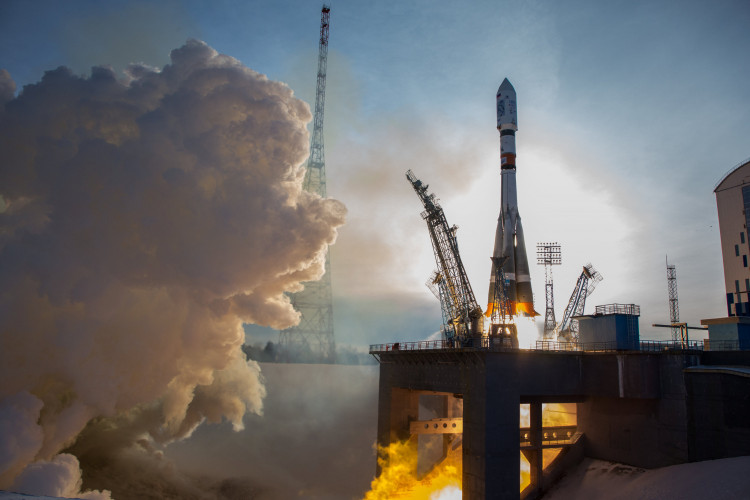Due to European Union sanctions over Russia's invasion of Ukraine, the Russian space agency Roscosmos has stopped all Soyuz rocket launches from Europe's spaceport in French Guiana.
Russia is also recalling 87 Russian workers from Europe's South American spaceport in French Guiana, who support Roscosmos and Russian companies NPO Lavochkina, Progress RCC, and TsENKI with Soyuz rocket launches.
"In response to EU sanctions against our enterprises, Roscosmos is suspending cooperation with European partners in organizing space launches from the Kourou cosmodrome and withdrawing its personnel, including the consolidated launch crew, from French Guiana," Roscosmos chief Dmitry Rogozin said in a Twitter statement on Saturday (Feb. 26) according to a translation from Russian.
Arianespace, a European launch provider, uses Russia's Soyuz rockets to launch satellites from the Guiana Space Center near Kourou, French Guiana, as well as the Baikonur Cosmodrome in Kazakhstan (where Russia regularly launches its own Soyuz missions). The most recent Soyuz rocket flight from Guyana Space Center took place on Feb. 10 with 34 OneWeb internet satellites aboard.
Arianespace, headquartered in France, also employs its own European Ariane 5 heavy-lift rocket and the Vega rocket for smaller launches from French Guiana.
The next Soyuz launch by Arianespace is slated for early April, with the launch of two Galileo navigation satellites into orbit for the European Union's Galileo constellation. Because of Russia's announcement on Saturday, that mission will almost definitely be postponed.
The European Commissioner for Space, Thierry Breton, stated that Russia's decision to cease Soyuz launches with Europe will have no impact on users of the Galileo satellites or the E.U.'s Copernicus Earth observation satellite program.
"I confirm that this decision has no consequences on the continuity and quality of the Galileo and Copernicus services," Breton said in the statement. "Nor does this decision put the continued development of these infrastructures at risk."
In addition to canceling Soyuz launches from French Guiana, Rogozin stated on Saturday that, given the ongoing sanctions, he no longer felt a joint Russian-U.S. collaboration on Russia's planned Venera-D mission to Venus was necessary.
In a separate statement, Rogozin said that the U.S.'s continued participation in the Russian Venus mission, which was set to launch in the 2020s, was "inappropriate." In 2017, NASA scientists began negotiations with Russia to participate in the Venera-D mission.
ESA Director-General Josef Aschbacher said in a statement on Friday (Feb. 25) that European space officials were "closely monitoring what's happening" in Ukraine while assessing possible responses. The European Space Agency is collaborating with Russia's space program to fly the ExoMars rover mission to Mars later this year.






